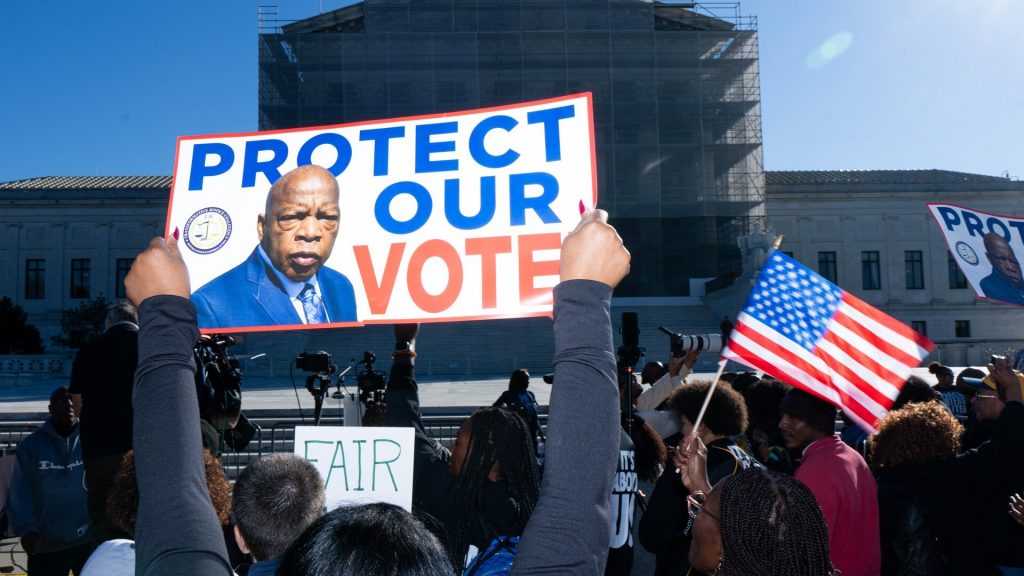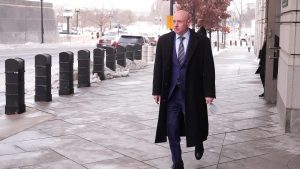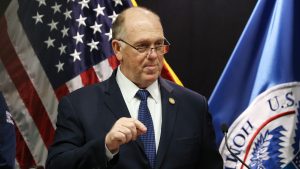Voting rights case could diminish Black representation in Congress

The Supreme Court is deliberating a challenge to the Voting Rights Act, which could change the way states draw congressional maps and, in turn, impact minority representation in Congress. The pending decision is cause for concern among Black members of Congress whose seats were created by the landmark civil rights legislation.
“If states can pick and choose which voters to silence, none of us are safe,” Rep. Terri Sewell, D-Ala., told reporters Wednesday.
How did the case get to the Supreme Court?
Louisiana’s legislature drew a new congressional map in 2022 that only had one Black majority district out of the six total seats in the U.S. House of Representatives. Black residents sued and won, arguing the state should have two Black majority districts since 30% of the state’s population is Black.
The state redrew the map to include two Black majority districts. Another group of residents sued shortly after, arguing the new Black majority district violates the 14th Amendment’s equal protection clause and the 15th Amendment, which prohibits race-based voter discrimination.
What did lawyers say during oral arguments?
The Trump administration sent an attorney to argue against the second majority Black district.
“The constitution prohibits intentional discrimination,” Principal Deputy Solicitor General Hashim Mooppan told the Supreme Court justices.
“It is saying you have to create a district for Black democrats that you would never create for white Democrats in a Republican state,” Mooppan continued. “It is essentially being used as a reverse partisan gerrymander on purely racial grounds. That is a constitutional problem.”
The case revolves around Section 2 of the Voting Rights Act, which essentially states that minority groups have a right to elect a representative of their choosing.
Lawyers arguing in favor of the new map warned the justices that further altering the Voting Rights Act could lead to some current members of Congress being drawn out of their districts.
“I think the result would be pretty catastrophic. If we take Louisiana as an example, every Congressional member who is Black was selected from a VRA opportunity district,” Janai Nelson with the NAACP’s Legal Defense Fund told the justices. “We only have the diversity that we see across the south, for example, because of litigation that forced the creation of opportunity districts under the Voting Rights Act.”
How could the decision impact Black representation in Congress?
Under current law, certain states are required to draw majority Black districts so a state’s racial minority residents can choose who they want to represent them in Congress. If the Supreme Court changes Section 2 of the VRA, state legislatures could draw new maps that do not include those districts.
“For so many of us here today, Section 2 is why we stand before you as members of the Congressional Black Caucus,” Rep. Terri Sewell, D-Ala., said.
Rep. Sewell is sponsoring the John Lewis Voting Rights Advancement Act. The bill would expand upon the Voting Rights Act’s preclearance provision, which requires states with a history of racial discrimination to get approval from the federal government before new voting laws or electoral districts can take effect.
She is criticizing the challenge to the second majority Black district in Louisiana.
“They are back in the Supreme Court trying to legalize discrimination against Black and minority voters, the stakes couldn’t be higher,” Sewell said. “For decades, Section 2 of the Voting Rights Act has served as a critical tool to fight back against discrimination and to ensure that minority communities are fairly represented.”
The Congressional Black Caucus members hope the Supreme Court decision will uphold Section 2, but they are preparing to take action if they lose.
“The Supreme Court may render a decision that’s antithetical to our best interest, but they don’t have the last word,” Rep. Al Green, D-Texas, told reporters. “We are the ‘we’ in ‘we the people.’ We have the last word, and we are not going to take this lightly.”
The post Voting rights case could diminish Black representation in Congress appeared first on Straight Arrow News.





